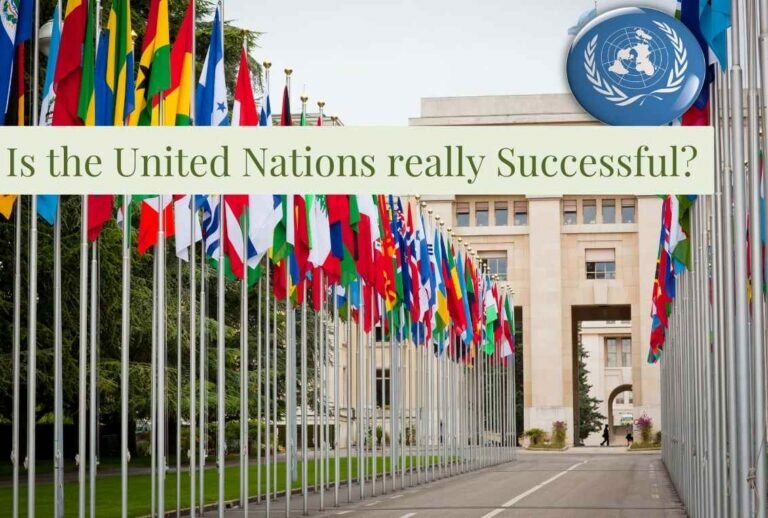Globalization: A Weapon for Colonisation or a Tool for Development
Globalization is a phenomenon that has been shaping the world for decades. It refers to the increasing interconnectedness and interdependence of countries through trade, investment, and communication. Globalization has brought many benefits to the world, such as increased economic growth and cultural exchange. On the other hand, it has also been criticized for exacerbating inequality and contributing to the colonization of developing countries. This article will explore the different ways in which globalization can be seen as a weapon for colonization or a tool for development. Let’s start with all the details:
The Impact of Globalization on Colonization
Globalization has had a significant impact on the colonization of developing countries. One of the main ways in which globalization has contributed to colonization is through the exploitation of resources and labor in these countries. Multinational corporations have been able to access resources and labor at a cheaper cost in developing countries. On the other hand, they are also exploiting the lack of regulatory oversight and weak labor laws. This has led to the extraction of resources. These include minerals and oil, and the establishment of labor-intensive industries, such as textiles and electronics, in developing countries.
Another way in which globalization has contributed to colonization is through the imposition of economic policies that favor developed countries. The World Trade Organization (WTO) and other international institutions have imposed trade policies that have forced developing countries to open their markets to competition from developed countries. They are also limiting their ability to protect their own industries. This has led to the erosion of local industries, resulting in the loss of jobs and economic opportunities for people in developing countries.
Also Read: Causes of Bad Governance in Pakistan
Furthermore, globalization has also enabled multinational corporations to exert control over the economies of developing countries. It is through the control of key sectors such as telecommunications, media, and banking. This has resulted in the concentration of economic power in the hands of a few corporations. And, it has led to the suppression of local businesses, further exacerbating inequality and poverty in developing countries.

In summary, globalization has had a significant impact on the colonization of developing countries through the exploitation of resources, labor, and economies. It has enabled multinational corporations to exert control over the economies of developing countries and has resulted in the erosion of local industries and businesses, exacerbating inequality and poverty.
The Role of Globalization in Development
Despite the negative impacts of globalization on colonization, it can also play a positive role in the development of developing countries. One of the main ways in which globalization can contribute to development is through increased economic growth. Globalization has led to the expansion of trade and investment, which has resulted in increased economic growth in developing countries. This has led to the creation of jobs and increased income for people in these countries, improving their standard of living.
Another way in which globalization can contribute to development is through the transfer of technology and knowledge. Multinational corporations and developed countries have been able to transfer technology and knowledge to developing countries through foreign direct investment and trade. This has led to the development of new industries and the improvement of existing ones, resulting in increased productivity and economic growth.
Furthermore, globalization has also enabled developing countries to access new markets, which has led to increased exports and economic growth. Developing countries have been able to increase their exports to developed countries, which has led to increased income and job opportunities for people in these countries.
Also Read: Importance of Free Speech Essay
In summary, globalization can play a positive role in the development of developing countries through increased economic growth, transfer of technology and knowledge, and access to new markets. It has the potential to improve the standard of living and create job opportunities for people in these countries. However, it’s important to note that for these benefits to materialize, it’s crucial for developed countries and international organizations to implement policies that are fair, equitable, and sustainable.
The Pros and Cons of Globalization
Pros of globalization include:
- Increased economic growth and efficiency: Globalization allows countries to specialize in certain industries and sell their products to a global market. It is leading to increased productivity and economic growth. It also allows for the free flow of capital, technology, and ideas, leading to more efficient use of resources and economic growth.
- Increased access to foreign goods and markets: Globalization allows consumers to have access to a wider variety of goods and services at lower prices. It also allows businesses to expand into new markets and increase their customer base.
- Spread of technology and information: Globalization leads to the spread of technology and information, which can improve living standards and promote innovation.
- Increased cultural exchange: Globalization leads to increased cultural exchange, which can promote understanding and tolerance among different cultures and peoples.
Also Read: Earthquake Safety Information by Japan
Cons of Globalization include:
- Displacement of workers and loss of jobs in certain industries: Globalization can lead to the outsourcing of jobs to countries with lower labor costs. This is resulting in job losses and wage stagnation for workers in developed countries.
- Increased income inequality: Globalization can lead to increased income inequality as the benefits of economic growth are not distributed evenly among all segments of society.
- Potential cultural homogenization: Globalization can lead to the spread of western culture and values, potentially leading to the loss of traditional cultures and ways of life.
- Environmental degradation: Globalization can lead to increased pollution and resource depletion as countries industrialize and consume more resources to produce goods and services for export.
- Dependence on other countries: Globalization leads to increased dependency on other countries for resources, goods, and services. This can lead to vulnerable situations in case of any adverse political or economic situation in those countries.
Conclusion
In conclusion, globalization can be seen as both a weapon for colonization and a tool for development. On one hand, it can lead to the displacement of workers and loss of jobs in certain industries, increased income inequality, and cultural homogenization. On the other hand, it can lead to increased economic growth and efficiency, increased access to foreign goods and markets, and the spread of technology and information. Ultimately, the effects of globalization will depend on the policies and actions taken by governments and other actors to mitigate its negative impacts and maximize its potential benefits for all people.
It is important for nations to approach globalization with a holistic perspective, and to ensure that the benefits are distributed equitably among all segments of society. This can be achieved through active participation and collaboration in global governance, and by creating policies that promote sustainable development and social inclusion.








Great effort